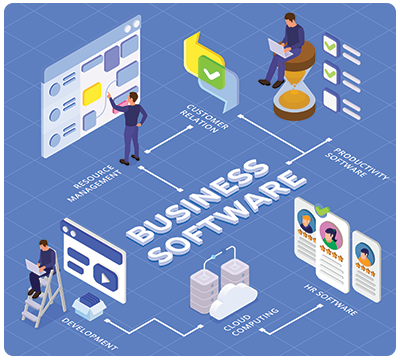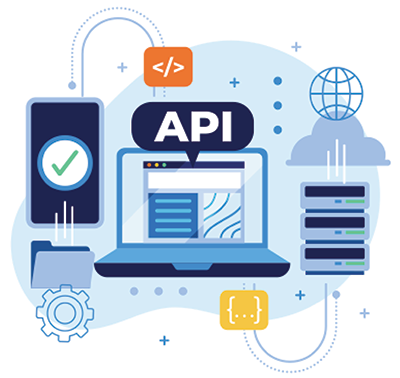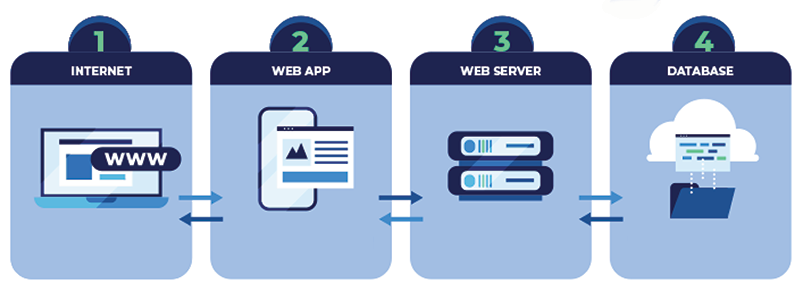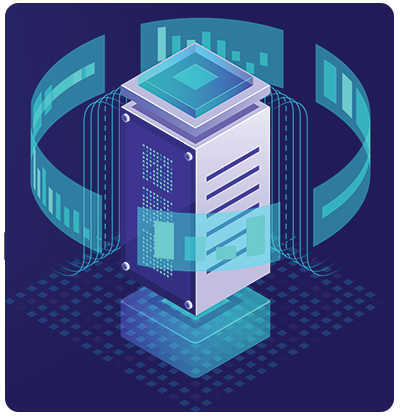
Integration Consulting: Transform Your Operations with Seamless Technology Solutions
Introduction
In a world teeming with technological advancements and market disruptions, the imperative for businesses to adapt and integrate sophisticated systems is not just a strategic maneuver but a survival mechanism. The pursuit of integration consulting represents a pivotal shift in the corporate ethos, aiming not merely for incremental improvements but for a radical reimagining of operational capabilities and market positioning. This drive encompasses a spectrum of aspirations from achieving streamlined operations to pioneering customer experience enhancements, each reflecting a deep-seated desire to transcend traditional boundaries and redefine industry standards.
Yet, the path to realizing these ambitions is fraught with complexities that extend beyond the mere technicalities of system integration services or the intricacies of technology consulting. It touches on a more profound challenge—a resistance to change that is as much about human psychology as it is about organizational structures. This resistance, deeply embedded within the fabric of corporate cultures, acts as the most formidable barrier to not only adopting new technologies but also to fostering an environment where innovation thrives unimpeded. Overcoming this barrier requires a nuanced understanding of both the tangible and intangible aspects of integration, where the metrics of success are not solely dictated by the efficiency of business process integration but by the capacity to engender a culture of adaptability and continuous improvement.
The quest for digital transformation consulting, therefore, is not just a pursuit of technological excellence but a journey towards cultivating a strategic mindset that views integration not as an endpoint but as a catalyst for perpetual evolution. In this context, the role of integration consulting transcends the confines of operational efficiency, venturing into the realm of shaping competitive landscapes and crafting legacies that withstand the test of time and technology.
Common Aspirations
 In the intricate dance of corporate strategy, the aspirations fueling the quest for integration consulting are not mere checkpoints but beacons illuminating the path to market dominion and sustainable competitive advantage. At the heart of this pursuit lies the ambition for streamlined operations—a vision of a seamlessly interconnected ecosystem where silos are dismantled, and information flows as effortlessly as water, driving efficiency to previously unattainable heights. This vision extends beyond the operational realm, aspiring to harness the power of data integration solutions to transform raw data into the currency of strategic decision-making. In this context, the ambition transcends the mechanics of technology consulting, venturing into the strategic exploitation of information to carve out market niches and redefine competitive battlegrounds.
In the intricate dance of corporate strategy, the aspirations fueling the quest for integration consulting are not mere checkpoints but beacons illuminating the path to market dominion and sustainable competitive advantage. At the heart of this pursuit lies the ambition for streamlined operations—a vision of a seamlessly interconnected ecosystem where silos are dismantled, and information flows as effortlessly as water, driving efficiency to previously unattainable heights. This vision extends beyond the operational realm, aspiring to harness the power of data integration solutions to transform raw data into the currency of strategic decision-making. In this context, the ambition transcends the mechanics of technology consulting, venturing into the strategic exploitation of information to carve out market niches and redefine competitive battlegrounds.
Further, the aspirations encompass scalability and flexibility, not just as operational imperatives but as strategic levers. In a world where change is the only constant, the ability to pivot and scale becomes a cornerstone of resilience, enabling businesses to navigate the tumultuous waters of market dynamics with agility and purpose. This strategic flexibility is mirrored in the ambition for innovation and competitive advantage—where the integration of cutting-edge technologies through enterprise application integration (EAI) or cloud integration consulting becomes a conduit for creating value propositions that disrupt market equilibriums and redefine consumer expectations. Similarly, the quest for enhancing customer experience through CRM integration or achieving cost reduction through operational technology (OT) integration reflects a deeper strategic intent to align operational capabilities with overarching business objectives, crafting a symbiotic relationship between technology and strategy that propels businesses towards their zenith.
Thus, the common aspirations of companies seeking the expertise of integration consulting firms are rooted not in mere operational enhancements but in strategic transformations that fundamentally realign technology with core business goals, altering the competitive landscape. This quest disrupts traditional views on technology adoption, championing a comprehensive strategy where integration transcends simple operational efficiency. Instead, it emerges as a critical strategic endeavor, weaving together diverse resources, capabilities, and technologies into a cohesive ecosystem. This holistic approach ensures that every technological investment and system implementation is directly tied to enhancing competitive advantage, driving innovation, and securing a position of leadership within the market. It’s a deliberate move away from viewing technology as a support function to recognizing it as a central pillar in the strategic planning process, integral to achieving long-term business success and sustainability.
The Paramount Challenge: Resistance to Change
 In the grand strategic theater of integrating advanced systems and processes, the paramount challenge emerges not from the technical intricacies of cloud integration consulting or the selection of the right technology consulting partners. Instead, it is the deeply human element of resistance to change that stands as the most formidable adversary. This resistance, embedded in the very psyche of organizational culture and individual behavior, directly confronts overcoming employee resistance to change, challenging leaders to not only navigate the complexities of technological adaptation but also to master the art of guiding their people through the tumult of transformation. It is a battle that requires more than mere managerial decree; it demands a nuanced understanding of human emotions, fears, and motivations, making it an endeavor that is as much about psychology as it is about strategy.
In the grand strategic theater of integrating advanced systems and processes, the paramount challenge emerges not from the technical intricacies of cloud integration consulting or the selection of the right technology consulting partners. Instead, it is the deeply human element of resistance to change that stands as the most formidable adversary. This resistance, embedded in the very psyche of organizational culture and individual behavior, directly confronts overcoming employee resistance to change, challenging leaders to not only navigate the complexities of technological adaptation but also to master the art of guiding their people through the tumult of transformation. It is a battle that requires more than mere managerial decree; it demands a nuanced understanding of human emotions, fears, and motivations, making it an endeavor that is as much about psychology as it is about strategy.
The resistance to change is a reflection of deeper fears: the fear of the unknown, the loss of control, and the disruption of comfort zones. It is a natural human inclination to cling to familiar grounds, making the leap into new operational paradigms a source of anxiety and opposition. This resistance is not a mere nuisance; it represents a significant barrier to realizing the strategic objectives that drive the pursuit of integration consulting in the first place. Whether it's integrating CRM systems to enhance customer experience or leveraging data integration solutions for informed decision-making, the technical achievements alone are insufficient if the workforce remains entrenched in outdated paradigms. The strategic imperative, therefore, extends beyond the technological—it encompasses the need to cultivate a culture that is not just receptive to change but is invigorated by it.
Overcoming this challenge requires a shift in perspective, where change is not enforced but embraced as a core element of the organizational ethos. It demands a strategic approach to change management that is proactive, empathetic, and inclusive, integrating "Tools for Successful Change Management" that address both the logistical and emotional aspects of transformation. Leaders must become champions of change, modeling the adaptability and resilience they wish to see in their teams. By doing so, they can transform resistance into a powerful force for innovation, driving their organizations not just toward technological integration but toward a future where they are poised to lead, adapt, and thrive in an ever-evolving competitive landscape.

Practical Application of Strategies
In the strategic orchestration of integration initiatives, the practical application of strategies unveils the nuanced complexity of bridging the gap between aspiration and realization. Consider the deployment of system integration services within a manufacturing firm, aiming to unify its operations across geographically dispersed units. The essence of success in this endeavor lies not solely in the technical execution but in the strategic engagement of every stakeholder through comprehensive "digital transformation consulting". This involves an iterative dialogue where feedback becomes the cornerstone of refinement, ensuring that the system not only integrates data but also aligns with the unique workflow and culture of each unit, thereby fostering a sense of ownership and commitment across the organization.
 Similarly, the integration of a CRM system within a retail chain exemplifies the strategic nuance of marrying technology with customer-centric strategies. Here, the practical application of strategies transcends the technical deployment of the CRM system, venturing into the realm of customer relationship management integration. It requires a meticulous understanding of customer behaviors, preferences, and expectations, ensuring that the technology becomes an enabler of enhanced customer experiences rather than a mere repository of data. This approach demands a shift in perspective, viewing the CRM not just as a tool for sales enhancement but as a strategic asset that can transform customer interactions into lasting relationships, thereby creating a competitive advantage that is difficult to replicate.
Similarly, the integration of a CRM system within a retail chain exemplifies the strategic nuance of marrying technology with customer-centric strategies. Here, the practical application of strategies transcends the technical deployment of the CRM system, venturing into the realm of customer relationship management integration. It requires a meticulous understanding of customer behaviors, preferences, and expectations, ensuring that the technology becomes an enabler of enhanced customer experiences rather than a mere repository of data. This approach demands a shift in perspective, viewing the CRM not just as a tool for sales enhancement but as a strategic asset that can transform customer interactions into lasting relationships, thereby creating a competitive advantage that is difficult to replicate.
In the realm of e-commerce, where data proliferates with each click and transaction, one client stood at a crossroads. Their ambition was not just to collect data from the diverse ecosystems of online sales, social media feedback, inventory logs, and digital marketing analytics, but to distill this information into actionable strategies that could redefine their market stance. The fragmentation of data across these channels presented a formidable barrier to realizing this vision, encapsulating the strategic dilemma of transforming raw data into a competitive lever.
This is where the essence of achieving a unified view of your data became not just a tactical objective but a strategic imperative. Our approach transcended the mere technicalities of data integration, positioning the consolidation effort within the broader context of the client's strategic goals. By meticulously orchestrating the flow of information from disparate sources into a singular, coherent data warehouse, we didn't just solve a logistical problem; we crafted a strategic asset. This data warehouse, enriched with insights drawn from across the operational spectrum, became the crucible for strategic decision-making, enabling a level of agility and precision previously unattainable.
The transformation was profound. With a unified view of their data, the client could now navigate the complexities of customer preferences, supply chain dynamics, and market trends with newfound clarity. This strategic pivot not only facilitated a deeper engagement with their customer base through personalized experiences but also optimized operational efficiencies and illuminated new pathways for growth. In essence, the journey toward consolidating their data landscape evolved into a strategic maneuver that fortified their competitive position, underscoring the pivotal role of data integration in sculpting the architectures of market leadership.
These examples underscore the strategic imperative of viewing integration not as an end in itself but as a means to achieve broader business objectives. It is a process that requires a holistic view, integrating technical capabilities with strategic insights, and aligning them with the organization’s core values and goals. By doing so, companies can ensure that their integration efforts are not just technically successful but strategically transformative, positioning them to navigate the complexities of the market with agility and confidence. This approach, characterized by strategic depth and tactical flexibility, turns the challenge of integration into an opportunity for innovation and leadership in an increasingly competitive landscape.
Benefits of Overcoming Resistance
 In the strategic odyssey of transforming resistance into receptivity, the benefits of overcoming resistance to change transcend operational efficiencies, embedding themselves into the very core of organizational strategy and competitive advantage. This metamorphosis, catalyzed through effective change management and strategic foresight, unlocks unparalleled agility and innovation, enabling businesses to not just respond to market dynamics but to actively shape them. Through the lens of "digital transformation consulting," overcoming resistance is not merely about adopting new technologies but about redefining the organizational ethos to one that is inherently adaptable, innovative, and forward-thinking.
In the strategic odyssey of transforming resistance into receptivity, the benefits of overcoming resistance to change transcend operational efficiencies, embedding themselves into the very core of organizational strategy and competitive advantage. This metamorphosis, catalyzed through effective change management and strategic foresight, unlocks unparalleled agility and innovation, enabling businesses to not just respond to market dynamics but to actively shape them. Through the lens of "digital transformation consulting," overcoming resistance is not merely about adopting new technologies but about redefining the organizational ethos to one that is inherently adaptable, innovative, and forward-thinking.
At the heart of this transformation lies the ability to leverage integrated systems, from cloud integration consulting to CRM integration, not as isolated operational tools but as strategic assets that enhance decision-making, streamline operations, and personalize customer engagement. The resultant operational efficiency and data-driven decision-making capability foster a nimbleness that allows firms to anticipate market shifts and respond with precision and agility. Moreover, the cultural shift towards embracing change nurtures an environment where innovation thrives, fueling continuous improvement and competitive differentiation.
Beyond operational and strategic enhancements, overcoming resistance cultivates a profound sense of unity and purpose across the organization. This alignment, born out of shared challenges and victories in the face of change, fosters a collaborative culture that is pivotal in navigating the complexities of today’s business landscape. As employees become more engaged and invested in the company’s vision, their collective creativity and commitment drive the organization towards achieving not just short-term goals but sustaining long-term growth and leadership in the market. Thus, the journey through resistance and into the realm of strategic adaptability and innovation marks a pivotal chapter in an organization’s quest for excellence and market dominance.
Conclusion
In the intricate tapestry of modern business strategy, overcoming resistance to change emerges not as a mere operational necessity but as a fundamental enabler of sustainable competitive advantage. The journey through the strategic landscapes of digital transformation consulting and beyond transcends the technical execution of system integration services, unfolding into a broader narrative of strategic rejuvenation and market leadership. It is a narrative that challenges conventional wisdom, advocating for a holistic vision where technology, culture, and strategy converge to propel businesses into new horizons of innovation and growth.
This convergence, crafted through the meticulous alignment of business process integration, CRM integration, and a myriad of other strategic initiatives, heralds a new era of organizational agility. It equips businesses with the foresight and flexibility to not only navigate the vagaries of market dynamics but to also seize the helm, steering the market itself through innovation and strategic insight. The essence of this transformation lies in the ability to view resistance not as an obstacle but as a catalyst for creating a culture that thrives on change, leveraging it as a strategic asset in the quest for excellence.
Thus, as we contemplate the future of business strategy in an ever-evolving digital landscape, it becomes evident that the mastery of change management is not just a strategic imperative but the very cornerstone of enduring market dominance. It is a testament to the power of integrating visionary leadership with strategic innovation, where the journey through change becomes the harbinger of a new age of competitive agility and strategic supremacy. In this context, the role of integration consulting transcends its operational roots, embodying a strategic pivot that redefines the very paradigms of success in the digital era.